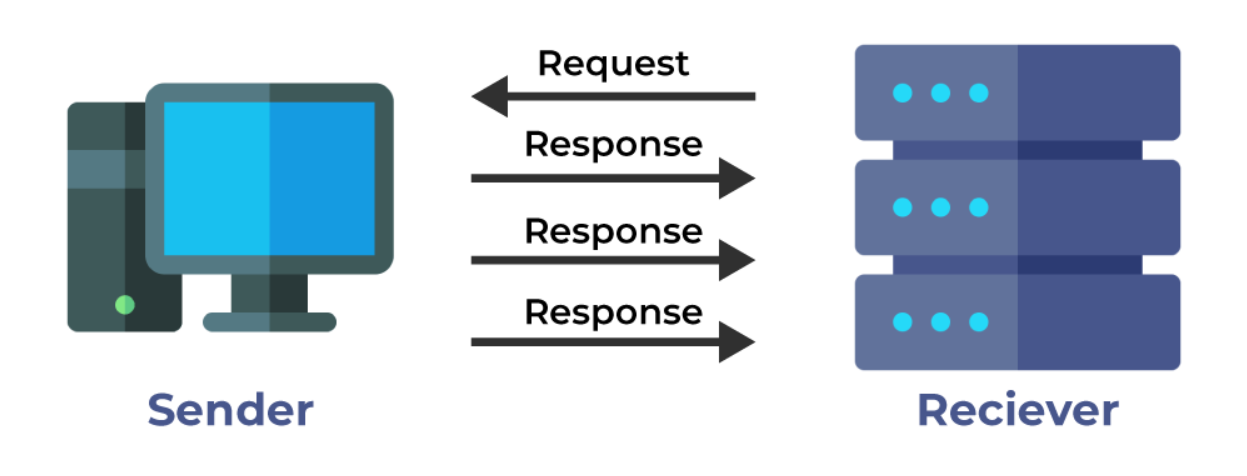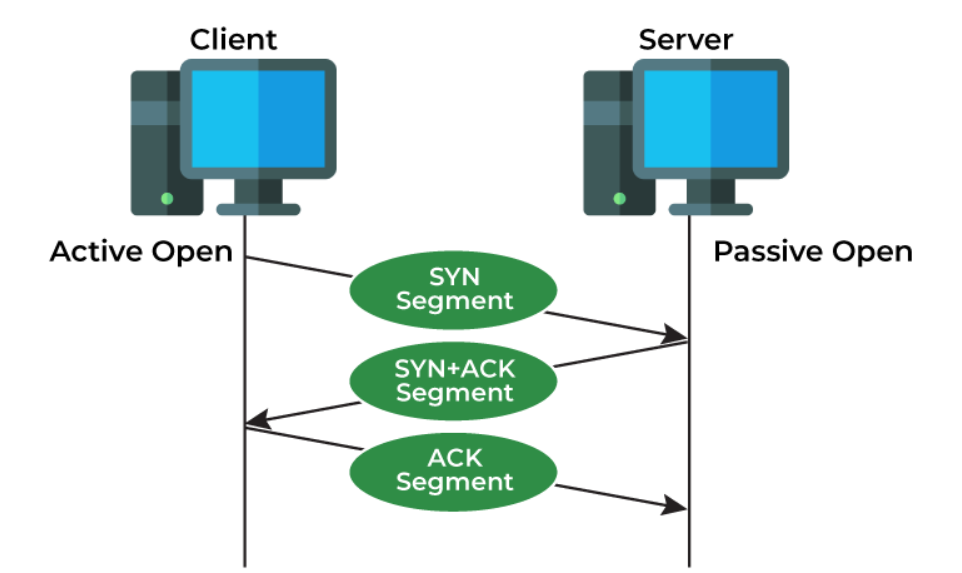TCP - UDP #
UDP #
User Datagram Protocol
Overview #

- Message Based Layer 4 protocol
- Ability to address processes in a host using ports
- Simple protocol to send and receive messages
- Prior communication not required (double edge sword)
- Stateless no knowledge is stored on the host
- 8 byte header Datagram
Demo #
// server.js
import dgram from "dgram";
const socket = dgram.createSocket("udp4");
socket.bind(5500, "127.0.0.1");
socket.on("message", (msg, info) => {
console.log(
`My server got a datagram ${msg}, from ${info.address}:${info.port}`
);
});
# client terminal
nc -u 127.0.0.1 5500
# client terminal
Hi
# client terminal
I am Dang
The result of the server log: (TBU)
TCP #
Transmission Control Protocol
Overview #

- Stream based Layer 4 protocol
- Ability to address processes in a host using ports
- “Controls” the transmission unlike UDP which is a firehose
- Connection
- Requires handshake
- 20 bytes headers Segment (can go to 60)
- Stateful
3 ways handshake #
Demo #
// server.js
import net from "net";
const server = net.createServer((socket) => {
console.log(
`TCP successfully handshack with ${socket.remoteAddress}:${socket.remotePort}`
);
socket.write("Hello Client!");
socket.on("data", (data) => {
console.log(`Received data ${data.toString()}`);
});
server.listen(6600, "127.0.0.1");
});
# client terminal
nc 127.0.0.1 6600
Client recieve message when successful establish the connection: (TBU)
# client terminal
This is data to send to the server!
Reference #
- Geeksforgeeks: Differences between TCP and UDP (06 May, 2023)
- Udemy: Fundamentals of Backend Engineering (Feb, 2024)